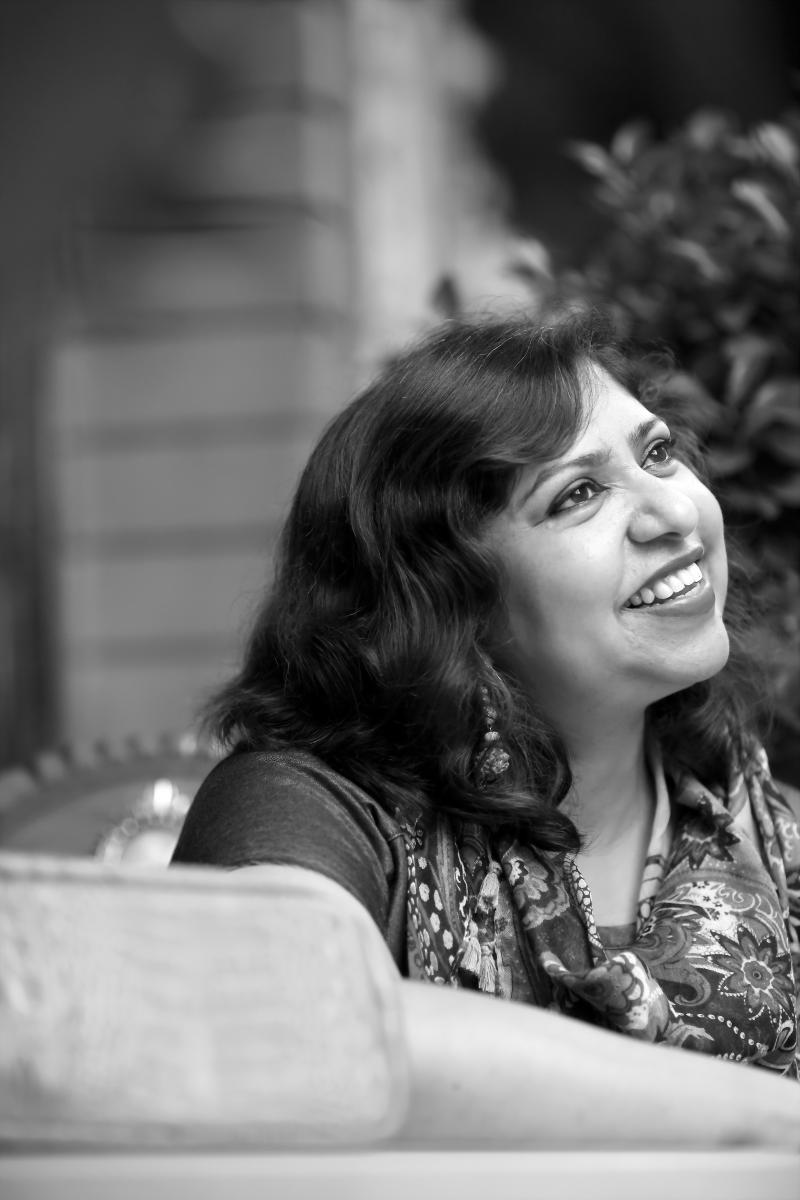 Dr. Dipika Mukherjee is an award-winning writer and is the author of the novel, ‘Thunder Demons,’ which was long-listed for the Man Asian Literary Prize in 2009. She won the Platform Flash Fiction competition in April 2009. Her work has appeared in the Asia Literary Review (Hong Kong), The South Asia Review (U.S), Flashquake (U.S), Freefall (Canada), Del Sol Review (U.S.), Pilot Pocket Books (Canada), Quarterly Literary Review of Singapore (Singapore), New Writing Dundee (UK), Asiatic (Malaysia) and Muse India (India). She has edited two anthologies of short stories: Silverfish New Writing 6 (Silverfish, 2006) and The Merlion and Hibiscus (Penguin, 2002). Her first poetry collection, ‘The Palimpsest of Exile’, was published by Rubicon Press (Canada) in April 2009. She is currently Professor 211 at the Institute of Linguistic Studies, Shanghai International Studies University, Shanghai. She is also a Fellow at the International Institute for Asian Studies in Leiden, Netherlands. To know more about Dipika, visit http://www.dipikamukherjee.com[/box]
Dr. Dipika Mukherjee is an award-winning writer and is the author of the novel, ‘Thunder Demons,’ which was long-listed for the Man Asian Literary Prize in 2009. She won the Platform Flash Fiction competition in April 2009. Her work has appeared in the Asia Literary Review (Hong Kong), The South Asia Review (U.S), Flashquake (U.S), Freefall (Canada), Del Sol Review (U.S.), Pilot Pocket Books (Canada), Quarterly Literary Review of Singapore (Singapore), New Writing Dundee (UK), Asiatic (Malaysia) and Muse India (India). She has edited two anthologies of short stories: Silverfish New Writing 6 (Silverfish, 2006) and The Merlion and Hibiscus (Penguin, 2002). Her first poetry collection, ‘The Palimpsest of Exile’, was published by Rubicon Press (Canada) in April 2009. She is currently Professor 211 at the Institute of Linguistic Studies, Shanghai International Studies University, Shanghai. She is also a Fellow at the International Institute for Asian Studies in Leiden, Netherlands. To know more about Dipika, visit http://www.dipikamukherjee.com[/box]
Vīram| Honour
She doesn’t know why she is here. The mist completely draped the mountainous roads as her brother and his friend drove through the night, and she now awakens to a morning curled into silence. The distant mountains, dragon-like, spit misty vapours into a paddy field studded with monasteries. The car comes to an unsteady halt as the tire spins unevenly on the gravel road.
The friend says, “Hurry up. Some herder will get curious soon.”
Her brother still grips the steering wheel, his knuckles strained. He looks straight ahead, but she sees his eyes glint in the rearview mirror.
She peers out, still groggy from the drink. The rooftops shiver with prayer flags and three schoolboys in uniform squat, playing marbles in the valley below. She imagines the dust rising with the flick of deft fingers and colours clashing into each other recklessly, fused momentarily by the impact of that joyful click before the race in opposite directions.
She looks at her brother; they used to play marbles together. But this is not the time to discuss childhood games. She has been locked up for the past three weeks, the wooden barricade lifted twice a day for the food to be slipped in. The nausea of her pregnancy, the rumours of her murdered lover… she had lost her appetite anyway.
Her brother yanks the door open. Her bruised face hangs down as he hisses, “What were you thinking? Why are you making us do this?”
She wants to hug his waist again, like the times she sat behind him on a motorcycle through a mad ride through the city, the wind whipping her hair. Instead, as he leads her out of the car, she finds her hand tightly clasped in his. She feels his tears, the jagged smear on his cheeks, and she finally understands why she is here.
His thumb caresses her neck until she angles her head. Her blood is a warm hum, its thrum slow from the drink, but she still feels the blade smooth over the creases of her short journey through life.
***
Śāntam | Breath
The boy loved purple balloons. Dadu would blow carefully into the purple ones (after they had separated all the yellows and greens, the pinks, reds and blues), puffing until his shriveled cheeks rounded like ping-pong balls. Dadu’s hands shivered as the balloons grew, his breath shook, and often, Dadu would have to stop and cough until he couldn’t breathe anymore. Then the boy would run to the kitchen tap, balance carefully on the rickety plastic step he was outgrowing and fill a glass of water. The old man would pat his young head wordlessly, gulping down the water, some of it dribbling onto his shirt. Sometimes, after the fit of coughing, Dadu would have to change, his pee wet on dark pants.
As a treat, Dadu would take out ripe guavas from the fridge and warm them in the microwave for the boy, peering blindly at the numbers on the display and stabbing aimlessly until the machine whined into action. The boy hated anything cold in his mouth.
Today, Dadu’s cheeks are unpleasantly cold to his lips. The house is full of people he does not know. A cousin explains what has happened, and ends by saying that Dadu had gone to Heaven, pointing upwards with sorrowful eyes. The boy also looks up. But no matter how hard the boy tries, he can’t see it; he can’t see Dadu, filled with the breath of the many purple balloons, floating up into the sky in a happy release.
[facebook] [/facebook] [retweet]Tweet[/retweet]





[…] “Honour” themed on the rasa Vīram (Heroism, Courage) & “Breath” themed on the rasa Śā… […]